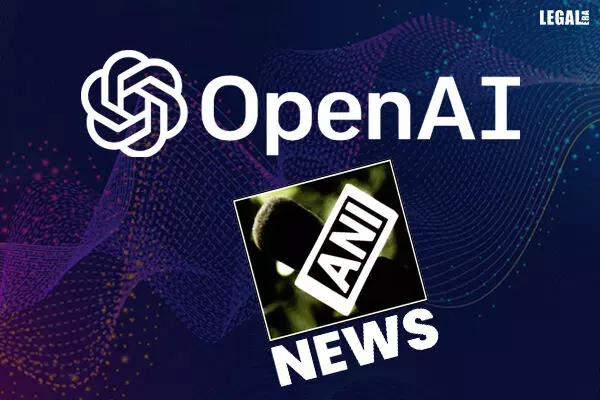- Home
- News
- Articles+
- Aerospace
- AI
- Agriculture
- Alternate Dispute Resolution
- Arbitration & Mediation
- Banking and Finance
- Bankruptcy
- Book Review
- Bribery & Corruption
- Commercial Litigation
- Competition Law
- Conference Reports
- Consumer Products
- Contract
- Corporate Governance
- Corporate Law
- Covid-19
- Cryptocurrency
- Cybersecurity
- Data Protection
- Defence
- Digital Economy
- E-commerce
- Employment Law
- Energy and Natural Resources
- Entertainment and Sports Law
- Environmental Law
- ESG
- FDI
- Food and Beverage
- Gaming
- Health Care
- IBC Diaries
- In Focus
- Inclusion & Diversity
- Insurance Law
- Intellectual Property
- International Law
- IP & Tech Era
- Know the Law
- Labour Laws
- Law & Policy and Regulation
- Litigation
- Litigation Funding
- Manufacturing
- Mergers & Acquisitions
- NFTs
- Privacy
- Private Equity
- Project Finance
- Real Estate
- Risk and Compliance
- Student Corner
- Take On Board
- Tax
- Technology Media and Telecom
- Tributes
- Viewpoint
- Zoom In
- Law Firms
- In-House
- Rankings
- E-Magazine
- Legal Era TV
- Events
- News
- Articles
- Aerospace
- AI
- Agriculture
- Alternate Dispute Resolution
- Arbitration & Mediation
- Banking and Finance
- Bankruptcy
- Book Review
- Bribery & Corruption
- Commercial Litigation
- Competition Law
- Conference Reports
- Consumer Products
- Contract
- Corporate Governance
- Corporate Law
- Covid-19
- Cryptocurrency
- Cybersecurity
- Data Protection
- Defence
- Digital Economy
- E-commerce
- Employment Law
- Energy and Natural Resources
- Entertainment and Sports Law
- Environmental Law
- ESG
- FDI
- Food and Beverage
- Gaming
- Health Care
- IBC Diaries
- In Focus
- Inclusion & Diversity
- Insurance Law
- Intellectual Property
- International Law
- IP & Tech Era
- Know the Law
- Labour Laws
- Law & Policy and Regulation
- Litigation
- Litigation Funding
- Manufacturing
- Mergers & Acquisitions
- NFTs
- Privacy
- Private Equity
- Project Finance
- Real Estate
- Risk and Compliance
- Student Corner
- Take On Board
- Tax
- Technology Media and Telecom
- Tributes
- Viewpoint
- Zoom In
- Law Firms
- In-House
- Rankings
- E-Magazine
- Legal Era TV
- Events
Delhi HC To Hear Intervention Petitions In Copyright Dispute Between ANI and OpenAI

Delhi HC to Hear Intervention Petitions in Copyright Dispute Between ANI and OpenAI
The Delhi High Court has issued a notice to OpenAI in response to fresh petitions filed by the Federation of Indian Publishers (FIPs) and the Digital News Publishers Association (DNPA) seeking to intervene in a copyright infringement case filed by news agency ANI Media against the artificial intelligence research organization.
ANI Media’s lawsuit, filed last year, claims that OpenAI exploited its original content for commercial purposes without authorization. The news agency accused OpenAI of unlawfully using its copyrighted material to train its generative AI chatbot, ChatGPT. ANI also alleged that ChatGPT had disseminated false information, citing ANI as the source, which posed a threat to its reputation.
The FIPs, representing publishers in India, have now sought to join the lawsuit, alleging that ChatGPT generated book summaries and extracts from unlicensed online content, damaging their members' businesses. The group contends that OpenAI has used their copyrighted literary works without permission to train ChatGPT.
The DNPA, which represents the digital branches of mainstream media organizations in India, has also raised concerns about the unauthorized use of copyrighted works to train AI models like ChatGPT.
While issuing notice to OpenAI, Justice Amit Bansal emphasized that the scope of the copyright suit could not be expanded by the intervenors. "If the intervention application is allowed, the scope of the suit shall remain confined, and the intervenors will only be allowed to make submissions on the legal issues arising in the case," the court stated.
Senior counsel Amit Sibal, representing OpenAI, challenged the intervention applications, arguing that FIPs had no authorization to file them. He stated that the publishers' issues differed from those of ANI and raised questions of jurisdiction, asserting that Indian courts did not have jurisdiction over the case as the model training for ChatGPT occurred outside India. Sibal further argued that the accessibility of ChatGPT in India did not automatically grant jurisdiction to Indian courts, pointing out that OpenAI’s Terms of Use specified that legal matters should be addressed in California courts.
The Delhi High Court, however, noted that it would consider the jurisdictional issue when deciding ANI’s application for an interim injunction. The court will next hear the case on February 18, 2025.


